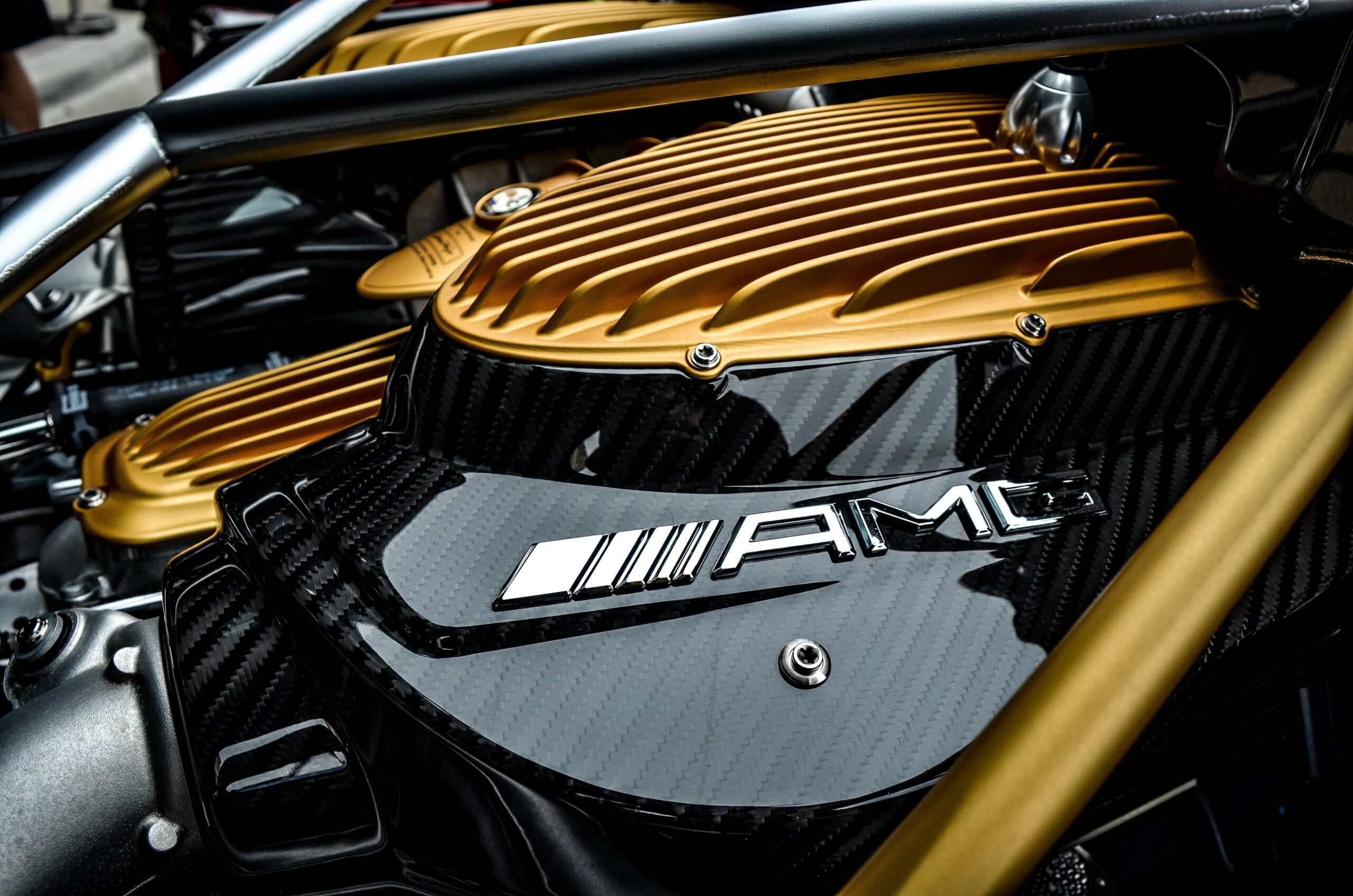How long can you drive a deceased person’s car?


To understand the legalities of driving a deceased person’s car, delve into the Transfer of Ownership, Probate Process, and Estate Administration below. These sub-sections provide solutions to the legal challenges that arise when inheriting and driving a deceased person’s car.
Transfer of Ownership
When it comes to the transfer of ownership after the death of a car owner, there are legal formalities that need to be followed. A table is an effective way to demonstrate the process and requirements for transferring the ownership of a deceased person’s car. Below is a breakdown of the procedures involved:
| Requirements | Process |
|---|---|
| Death Certificate | Obtain the death certificate from relevant authorities |
| Will | Check if there is a will available as it may outline details regarding car ownership transfer |
| Probate Court | In case there is no will, go to probate court for authorization before proceeding |
| Car | Complete the transfer of ownership through the DMV or relevant authority |
It’s worth noting that while most states follow similar processes, certain additional requirements may differ depending on the state’s laws.
It’s important to note that it can take several weeks or even months to complete this process due to verification and authentication checks by government agencies.
Finally, according to Edmunds.com, “Inheriting a vehicle can be an emotional time and an unfamiliar process but taking time in navigating through this situation preserves important memories while keeping you within the law.”
Probate Process
When someone passes away, managing the distribution of their assets becomes crucial. The process of settling their estate is called Probate, and it involves validating the will, paying debts, and distributing property among beneficiaries. In relation to driving a deceased person’s car, the probate procedure can become complicated depending on whether they had a valid will or not.
If the deceased person left behind a valid will that specifically bequeaths the vehicle to someone else, then that person will have legal rights to drive it after obtaining all necessary documents. However, if there is no valid will or clear instruction for who gets to drive the car, the ownership and driving privileges must go through probate court. The executor – appointed by court order – manages this procedure that may vary by state law.
It is also important to note that using the decedent’s vehicle without authorization is unlawful and could result in severe consequences. For example, if there are unpaid parking tickets or backups with insurance coverage for damages and accidents caused while driving illegally may lead to unwanted legal problems for both parties involved.
To avoid any legal trouble when dealing with a deceased individual’s vehicle postmortem, following proper procedures becomes imperative. It would involve hiring an experienced attorney who specialized in estate law or contacting local DMV offices for guidance on how best to proceed further.
In summary, dealing with property ownership after someone passes away can be legally complex. Individuals should not make assumptions about property ownership without consulting legal advice first. Therefore hiring an experienced attorney specializing in estate law can help navigate the probate process seamlessly and ensure that everything runs smoothly according to state laws governing such situations.
Estate Administration
When it comes to managing the assets of someone who has died, a complex legal process known as Estate Administration must be followed. This process covers everything from locating all assets and debts of the deceased, to distributing those assets according to their will or state law. As part of this process, questions may arise about driving a car that was owned by the deceased.
It is important to understand that the ownership of a vehicle does not automatically transfer to someone else when the owner passes away. Instead, the estate must go through probate court or a similar legal process in order to determine who will inherit the vehicle along with other assets. Until that process is complete, it is typically advisable for no one to drive the vehicle.
If an individual wishes to use the vehicle before it has been officially inherited through estate administration, they may need special permission and documentation in order to do so legally. It is important to consult with an attorney or other legal professional before attempting this.
One example of how these rules can play out occurred when Prince passed away in 2016. Before his estate had completed the probate process, someone attempted to sell one of his cars illegally. The issue was quickly resolved, but it serves as a reminder that proper estate administration procedures must be followed closely in order to avoid legal issues down the line.
Insurance Coverage for Driving a Deceased Person’s Car
To understand how insurance coverage works for driving a deceased person’s car, you need to consider a few factors. In order to navigate this tricky situation, the most common solutions are Power of Attorney, having the deceased named on the insurance policy, or obtaining temporary coverage. Let’s delve into these sub-sections and explore their benefits in more detail.
Power of Attorney
The legal authority granted to an individual to make decisions on behalf of another person is known as Proxy Decision Making. This power can be given through Power of Attorney, allowing someone to make financial or health-related decisions if the original owner becomes incapacitated. Typically, a power of attorney document is required for insurance coverage when driving a deceased person’s car.
Driving a deceased person’s car can create legal risks that may have consequences not only for the driver but also for the vehicle’s estate and beneficiaries. Not having proper insurance coverage in place can cause significant issues in case of an accident or liability dispute. Therefore, it is crucial to have a clear understanding of the rules and requirements that apply before getting behind the wheel.
In some cases, insurance coverage may transfer from the decedent to the new driver, provided specific conditions are met. It is essential to check with both the insurance company and the estate executor before assuming any coverage will apply. Doing so will ensure that everything is handled appropriately and prevent any potential legal challenges during this challenging time.
Pro Tip: It is best to avoid driving a deceased person’s car if you’re unsure about their insurance coverage or lack an adequate Power of Attorney document in place.
Named Driver on Insurance Policy
When an individual is named as a driver on an insurance policy, it means that they are officially allowed to operate the insured vehicle. This can provide security for both the driver and the owner of the vehicle in case of accidents, theft or damage.
- Being a named driver means that you have legal permission to drive a specific car under certain conditions.
- With this coverage, you will be protected in case of an accident and will not need to pay out-of-pocket expenses.
- It is important for owners to name drivers on their insurance policies to ensure that they are fully covered if something happens while their car is being driven by someone else.
It is worth noting that being a named driver does not mean you have complete control over how the insurance policy operates, but rather simply gives you permission to operate the insured vehicle within certain guidelines. It is recommended to carefully review policy terms and conditions before driving anyone else’s car and get comprehensive coverage if extra protection is needed.
Driving someone’s car without being properly insured could result in hefty financial expenses such as fines or damages that could negatively impact all involved parties.
A few years ago, my friend was allowed to drive his deceased grandparent’s car which was still under her name. Although he was given family permission to use it, he was not officially added as a named driver on her policy. Unfortunately, during his drive back home from work one day he met with an accident causing significant damage and cost him large amounts of out-of-pocket expenses. He then learned about the importance of being added as a named driver in another person’s insurance policy when using their car.
Temporary Insurance Coverage
When it comes to covering insurance for a deceased person’s car, there is a provision of temporary coverage. This means that the car can be insured under the name of the executor or administrator of the estate for a limited period until it is sold or transferred to a new owner. The length of this coverage varies from one insurance company to another.
During this temporary coverage period, the executor or administrator becomes responsible for ensuring that the vehicle is covered with liability and collision coverage. It is important to note that most insurance companies require written proof of authorization from either the executor or administrator, along with proper documentation regarding ownership and registration of the vehicle.
In certain circumstances, if an individual has been named as a beneficiary in the deceased person’s will but does not have legal authority over the estate, they may still be able to receive temporary insurance coverage for driving the car. However, this can only happen with written authorization from both the executor/administrator and the beneficiaries involved.
It should be noted that insurance requirements and regulations vary by state. It is important to consult with an experienced attorney or insurance professional when navigating these complex matters.
According to Nolo.com, “If you are using someone else’s car temporarily and you get into an accident, you may indeed be covered by their auto insurance policy — if you buy non-owner car insurance.”
Risks Associated with Driving a Deceased Person’s Car
To understand the risks involved in driving a deceased person’s car, you must be aware of the liabilities that come with it. In order to avoid legal complications, it is important to know the liabilities that fall under two categories: namely, liability for accident damages and criminal liability.
Liability for Accident Damages
If an accident occurs while driving a deceased person’s car, the liability for damages shifts to the driver and their insurance company. It is important to note that the car may not be covered by insurance if it was not properly transferred to the new owner. It is advisable to check with the DMV and get legal advice before driving such a vehicle.
While inheriting a loved one’s car can be sentimental, it is crucial to take necessary precautions. Liability for any accidents caused while operating such a vehicle lies with the driver who should ensure proper transfer of ownership and check their auto insurance policy for coverage.
It is also important to note that probate proceedings need completion before transferring ownership of a deceased individual’s assets, including cars. As a result, it is safer to avoid using such vehicles until confirmed transfer of ownership has occurred.
A study conducted by The Zebra revealed that inheritance of vehicles increases the number of cars on U.S roads annually.
Criminal Liability
The Legal Implications of Driving a Car Belonging to a Deceased Person
When driving a car that belongs to someone who has passed away, there are several legal implications that could arise. In the eyes of the law, you could be seen as driving without proper authority or permission. This could put you at risk of criminal charges if it is found that you were aware of the deceased’s passing and still continued to drive their car.
Moreover, insurance companies are also likely to deny coverage for accidents or damage caused by an unauthorized driver of the vehicle. Therefore, it is crucial to inform both the police and insurance provider after the owner’s passing and avoid driving their car until proper authorization has been obtained.
It is important also to note that if you inherit the car as part of the estate, you will need to re-register the title into your name before being able to legally drive it.
Reputable source ‘Nolo’ suggests “If there’s reason to believe that anyone else might try to take possession or remove assets (people often steal things while mourners gather), secure all keys“.
Procedures to Follow When Driving a Deceased Person’s Car
To follow procedures when driving a deceased person’s car, start with notifying the insurance company. Verify the coverage and obtain necessary documentation for a smooth transition. These steps ensure that you are legally allowed to drive the car and that it is adequately insured.
Notify Insurance Company
When driving a car belonging to a deceased person, it is important to inform the insurance company of the situation. This can be done by contacting the insurer immediately and providing details such as the name of the deceased, policy number, and date of death.
The insurance company will then guide you on what steps to take next. They will inform you if there are any changes in your coverage or if additional documents are required. It is important to comply with their requests promptly.
In some cases, an insurance policy may only cover the original owner of the vehicle, and driving it after their death may invalidate coverage. Therefore, notifying the insurer is crucial to ensure that any claims made will be honored.
It is also worth noting that failure to inform the insurance company may result in legal penalties or even cancellation of your policy.
To avoid any complications or penalties, notify your insurance company as soon as possible when driving a deceased person’s car. This will ensure that you remain covered and receive any necessary guidance during this difficult time.
Verify Insurance Coverage
The deceased person’s car must be insured promptly before driving it legally. It is essential to ensure that the insurance coverage for the deceased person’s car is still valid and in force, and that the policy allows other drivers to operate the vehicle. Therefore, confirming insurance coverage is necessary.
Before driving a deceased person’s car, one should consult with their insurance provider or an attorney to verify ownership of the vehicle. Additionally, check whether there are any outstanding liens or other legal impediments on the vehicle.
It is crucial to note that operating a deceased person’s car without proper legal authorization can result in significant fines and/or criminal charges. Hence, verifying all legal matters regarding ownership and usage of the vehicle becomes crucial.
Pro Tip: While borrowing a deceased person’s car, it is important to ensure that you have a valid driver’s license and no record of reckless or dangerous driving in order to avoid any additional trouble with authorities.
Obtain Necessary Documentation
To access the necessary paperwork, one must obtain legal permission to use a deceased person’s vehicle. This can be done by presenting the relevant documents to a local law enforcement agency. These papers include proof of insurance, a death certificate and registration documents. After obtaining these, one is legally permitted to start driving the car.
It is important to ensure that the above-mentioned documents are up-to-date, with no discrepancies or errors present in any of them. One should also verify that they have obtained all necessary paperwork related to driving privileges and operation of the car.
In addition, it is advisable to investigate whether there are any outstanding loans taken out on the vehicle before its owner passed away. If so, arrangements must be made to settle these loans before driving the car.
By obtaining and reviewing all required legal documentation, a person can avoid potential legal issues as well as ensure their own safety while using a deceased person’s vehicle. Furthermore, gaining proper legal permission for vehicle usage ensures compliance with local and state laws regarding transportation.
Understanding the Responsibility of Driving a Deceased Person’s Car.
Driving a car that was previously owned by someone who is now deceased may seem straightforward, but it entails a lot of responsibilities and legal considerations. As the new owner or temporary driver of the vehicle, you must ensure that all legal requirements are met before taking it on the road.
The period for driving a deceased person’s car depends on the state laws and circumstances in question. In most states, you will require probate court-approved documents or letters testamentary that give you legal authority to use the vehicle for specific purposes. Typically, these documents are issued to an executor or administrator of the estate. Once you have them, you can manage and drive the car until its transfer is completed.
In some cases, it may be possible to continue driving the deceased person’s car without involving probate court-approved documentation. For instance, if you lived with the deceased person and shared ownership of the vehicle with them under rights of survivorship or joint tenancy with right of survivorship, then transfer of ownership to your name happens automatically.
Pro Tip: Always consult your state’s department of motor vehicles or an attorney familiar with probate law before driving someone else’s vehicle.
How long can you drive a deceased person’s car? – FAQs
Q: How long can I drive a deceased person’s car after they pass away?
A: Legally, it is recommended to not drive the deceased person’s car until the official transfer of ownership has been completed.
Q: What is the process for transferring ownership of a deceased person’s car?
A: The process varies depending on the state or country, but generally, the executor of the deceased person’s estate must provide a death certificate and other necessary documents to the DMV to transfer ownership of the vehicle.
Q: Can I drive a deceased person’s car if I am a beneficiary in their will?
A: No, you still must wait until the official transfer of ownership has been completed. Until then, driving the car could be considered unauthorized use.
Q: Can the deceased person’s insurance policy be transferred to the new owner of the car?
A: No, the insurance policy is tied to the deceased person and cannot be transferred to a new owner. The new owner will need to obtain their own insurance policy.
Q: What happens if I get pulled over while driving a deceased person’s car before the transfer of ownership is completed?
A: You may receive a ticket for unauthorized use of a vehicle. It is best to avoid driving the car until the transfer of ownership has been fully processed.
Q: How long does it typically take to transfer ownership of a deceased person’s car?
A: It varies depending on the state or country, but it can take a few weeks to a few months for the transfer of ownership to be completed. It is best to contact the DMV for specific information and requirements.










